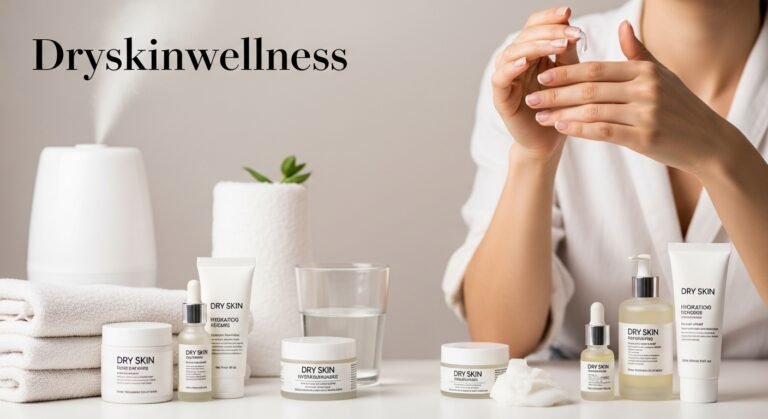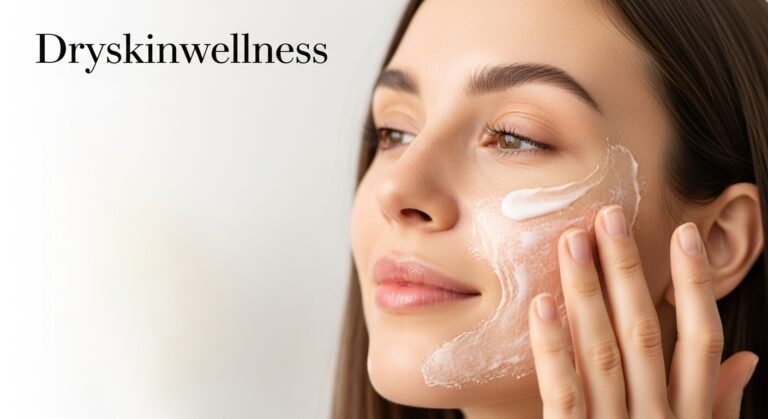Exploring The Facts | Is Dry Skin Good For Acne

Is dry skin good for acne?It is a common misconception that having dry skin can help reduce acne breakouts. Many people think that if their skin is dry, it will be less likely to produce oils and sebum, which can clog pores and cause pimples. However, this is only sometimes true. It is possible for dry skin to cause more problems with acne than having oily skin.
What is acne?
Acne is a common skin condition that affects people of all ages and backgrounds. It is caused by the overproduction of oils, which clog the pores on the face and body, leading to lesions, pimples, blackheads, and whiteheads. Acne can range from mild cases, such as occasional breakouts, to severe, resulting in cysts and scarring.
Does dry skin cause acne?
Although dry skin can lead to flaking and irritation, it does not directly cause acne breakouts. However, having dehydrated skin may make an individual more prone to developing acne, as the lack of hydration can cause inflammation on the surface in the form of redness or flakiness. This can lead to more severe acne, such as cysts and nodules, which are much harder to treat than regular breakouts.
Ways to reduce dry skin acne
Although dry skin may make an individual more prone to acne, some steps can be taken to reduce the risk of breakouts. These include:
- Avoid harsh cleansers or exfoliants that can strip the skin of its natural oils, as this can lead to more dryness and irritation.
- Using a moisturizer regularly keeps the skin hydrated and prevents it from becoming too dry.
- Limiting the use of acne treatments such as benzoyl peroxide or salicylic acid, as these can be too drying for the skin and cause further irritation.
- Getting enough sleep, eating a balanced diet, and exercising regularly reduce stress levels, which can trigger breakouts.
- Use natural products such as aloe vera gel, honey, or tea tree oil to calm inflammation and reduce redness.
- Use a facial oil such as argan oil, jojoba oil, or rosehip seed oil to lock in moisture and keep the skin hydrated throughout the day.
- Eat a balanced diet and get enough sleep to reduce stress levels, which can trigger breakouts.
- Try using a gentle clay mask like Aztec Secret Indian Healing Clay to draw out impurities without stripping the skin.
- Apply a serum or night cream with salicylic acid to target the pores and prevent future breakouts.
How to remove acne from dry skin home remedies?
When dealing with acne on dry skin, it is essential to follow a gentler routine that will not over-dry the skin. This can involve using natural products such as aloe vera gel, honey, and tea tree oil with anti-inflammatory and calming properties or applying topical treatments such as retinoids or benzoyl peroxide in lower concentrations than usual.
It is also essential to keep the skin moisturized, avoid cleansers with detergents and fragrances, and use a mild face wash such as Cetaphil or La Roche-Posay Toleriane Hydrating Cleansers, specially formulated for sensitive skin
. Additionally, using facial oil can help to lock in moisture and keep the skin hydrated throughout the day. A few drops of pure argan oil, jojoba oil, or rosehip seed oil can help reduce inflammation and soothe any redness or irritation.
FAQs
Q: Is it true that having dry skin is good for acne?
A: No, having dehydrated skin may make an individual more prone to developing acne, as the lack of hydration can cause inflammation on the surface in the form of redness or flakiness.
Is dry or moist skin better for acne?
Regarding acne, neither dry nor moist skin is necessarily better. What’s more important is having healthy skin overall. People with dry skin may benefit from gentle cleansers and moisturizers that won’t strip the skin of its natural oils.
For those with oily skin, however, using products specifically designed to reduce excess oil production without over-drying the skin is essential. In either case, it’s important to keep your skin clean and hydrated and seek help from a dermatologist if you’re experiencing severe or persistent acne.
Can acne happen to dry skin?
Yes, acne can happen to people with dry skin. While having oily or combination skin makes it more likely that you’ll experience breakouts, acne can affect any skin. People with dry skin often have issues related to sebum production – the oil produced by the sebaceous glands in our skin – which can contribute to acne.
What is the best moisturizer for acne-prone skin?
When looking for a moisturizer, finding one that won’t clog pores or cause breakouts is essential. Look for ingredients like hyaluronic acid, which helps hydrate and protect your skin without adding oil. Avoiding any products with fragrances, parabens, or other synthetic compounds is also a good idea.
Final Thought
Is dry skin good for acne? While it is true that having dry skin may make an individual more prone to acne, it is not the only cause of breakouts. Therefore, following a regular skincare routine is essential to reduce the risk of developing dry skin-related acne.
By avoiding harsh cleansers or exfoliants, using a moisturizer daily, and limiting acne treatments such as benzoyl peroxide or salicylic acid, it is possible to keep the skin healthy and acne-free.
Overall, dry skin can be a nuisance, but taking the necessary steps to keep the skin hydrated and healthy is essential. Following a regular skincare routine, staying hydrated, and reducing stress levels can reduce the risk of developing dry skin-related acne. Proper treatment and care make it possible to keep dry skin healthy and acne-free.




